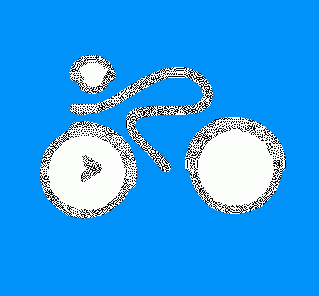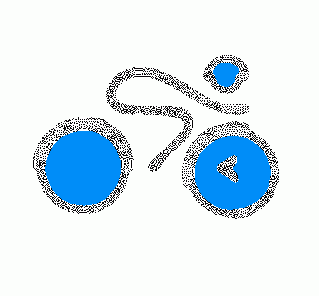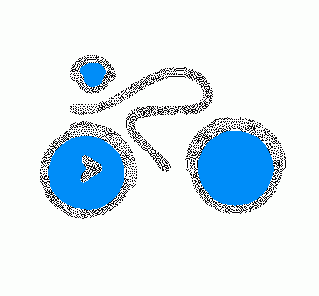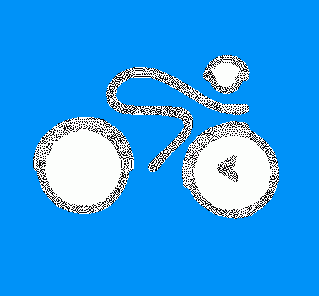| Newsletter - 2001 Archive |

|

|
Cycling Club |

|

|
| Newsletter - 2001 Archive |

|

|
Cycling Club |

|

|
Next--->
From the time that I was a small child, I had heard many stories about World War One. I had also spent a good deal of time listening to the radio as the wars of the 1930s were described. It was on the 10 May 1940, however, that I ceased to be a passive listener and became an active participant in the events that were destroying Europe and that brought an end to my youth.
From 1935 to 1939, the Japanese bombarded China and occupied the north of the country. The Italian dictator Mussolini captured Ethiopia and thus completed the era of colonial conquest. General Franco, with the help of Mussolini and Adolph Hitler, overthrew the democratically elected government in Spain, an action that resulted in the Spanish Civil War, which itself became a testing ground for new German armaments. Then Hitler invaded in quick succession Austria, Czechoslovakia, Poland, Denmark, and Norway. Finally, in May 1940, it was the turn of Holland, Belgium-and France. In the spring of 1940, on our farm in the north of France, we were waiting from day to day for the attack of the German army. Anxiety reigned; the faces of the adults reflected the seriousness of the moment. We were grouped around the radio, which informed us every hour of the dramatic situation that was evolving so quickly on the fateful day that was the 10 May 1940.
The great German offensive, the event that was to turn our lives upside down, had begun. The aerial combats that were taking place on this first day in the skies over our farm only confirmed for us the reality of the coming calamity.
The advance of the German troops across the forests of the Ardennes in Belgium and in France was rapid, and on the 15 May, the radio told us of the imminent arrival of the enemy forces in our district, which was 20 kilometers from the Belgian frontier. About a week earlier, my parents had sent my youngest brother, who was eight at the time, and my recently married sister to stay with her mother-in-law, who lived near Moulins in the centre of France.
On the night of the fifteenth, my parents decided that we too-my two brothers, aged seventeen and nineteen, and myself, aged fourteen, had to leave at dawn. As for my parents, who considered themselves old at this time, even though they were only forty-eight and fifty-one, they would stay at the farm and face whatever consequences awaited them.
They had spent all of World War One behind the German lines within hearing distance of the cannon and the other sounds of battle. For them, then, there was never any question of leaving the farm and thus abandoning their patrimony and starting over. They said, "We have already lived with and endured the 'Boches' for four years; we are not afraid of them!" In World War One the farm of my maternal grandparents was almost totally destroyed at the beginning of 1914; the only building that remained was the henhouse, and there they lived with their fourteen children for four years until the war ended in 1918. If my mother and father had realized at the time the cruelty of Nazism, however, they might well have acted otherwise.
On 16 May 1940, then, my mother woke us up, gave us breakfast, and bade us farewell. We were all in tears from the sadness and the anguish of our parting. About 5:30am, we left on our bicycles for Moulins. Each of us carried a small bundle of clothes, some money, and a little food. At 10:30 that morning, the Germans arrived at the farm, That same day, in spite of the chaos that we found on the roads, we managed to pass a column, almost a hundred kilometers longs, of French and Belgian refugees. Part of the great exodus ("L'Exode"), they were huddled in all sorts of horse-drawn wagons, tractors, cars, wheelbarrows, baby carriages, and bicycles. They carried with them as many of their household goods as they could. As their escort, courtesy of Adolph Hitler, they had German planes that took pleasure in gunning them down from time to time. Luckily, we did not have to undergo this treatment.
On the evening of 16 May, after having cycled about 160 kilometers, we arrived at Montmirail, and on the outskirts of this small town, we found on the right a farm where we were able to sleep for the night on some straw in the barn. Having been on the road for almost fifteen hours, our exhaustion obviously showed in our haggard looks. I shall always remember the farmer's wife, who must have been about the same age as my mother, as she greeted us with tears in her eyes as we arrived. I still cannot think of this scene, even less describe and talk about it, without becoming very emotional.
The next day we cycled approximately another 160 kilometers to near the city of Auxerre, and the day after we did about 180 kilometers to arrive at Moulins on 18 May 1940.
During the rest of the war, I had many other adventures; in September 1940, for example, I left the 'Free Zone,' where I had taken refuge, and crossed clandestinely the 'Occupied Zone' in order to return to my parents' farm in the 'Forbidden Zone.' The memory of these three days in May 1940, however, has always remained very clear for me, and for many years I have dreamed of doing this trip again and of covering the same ground in the same three days. Since my retirement I have cycled between five and six thousand kilometers a year. So finally I have decided, sixty-one years later, to repeat this voyage of my youth, before the weight of old age obliges me to give up my favorite pastime.
In this tour, which will take place between 16 and 19 May 2001, I shall be accompanied by Dr. Glen Smith, an excellent cyclist and a former Olympic athlete-he won a silver medal in rowing at the Olympics in Melbourne, Australia, in 1956-and Dan McGuire, who successfully completed the Paris-Brest-Paris bicycle marathon in 1979, 1983, and 1987, and who continues to cycle a good deal in France.
[Provided by Dan McGuire]
_